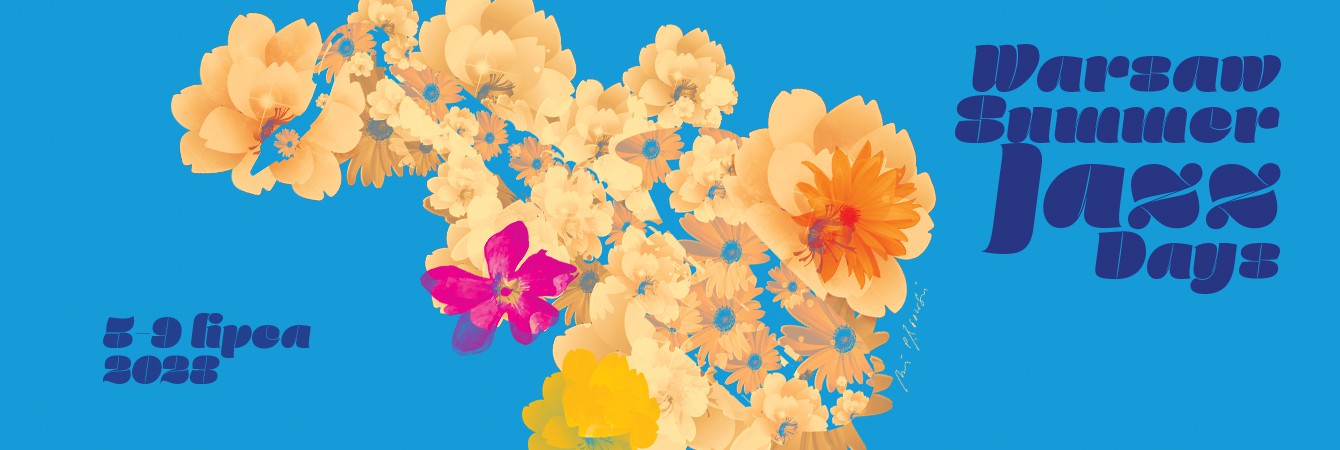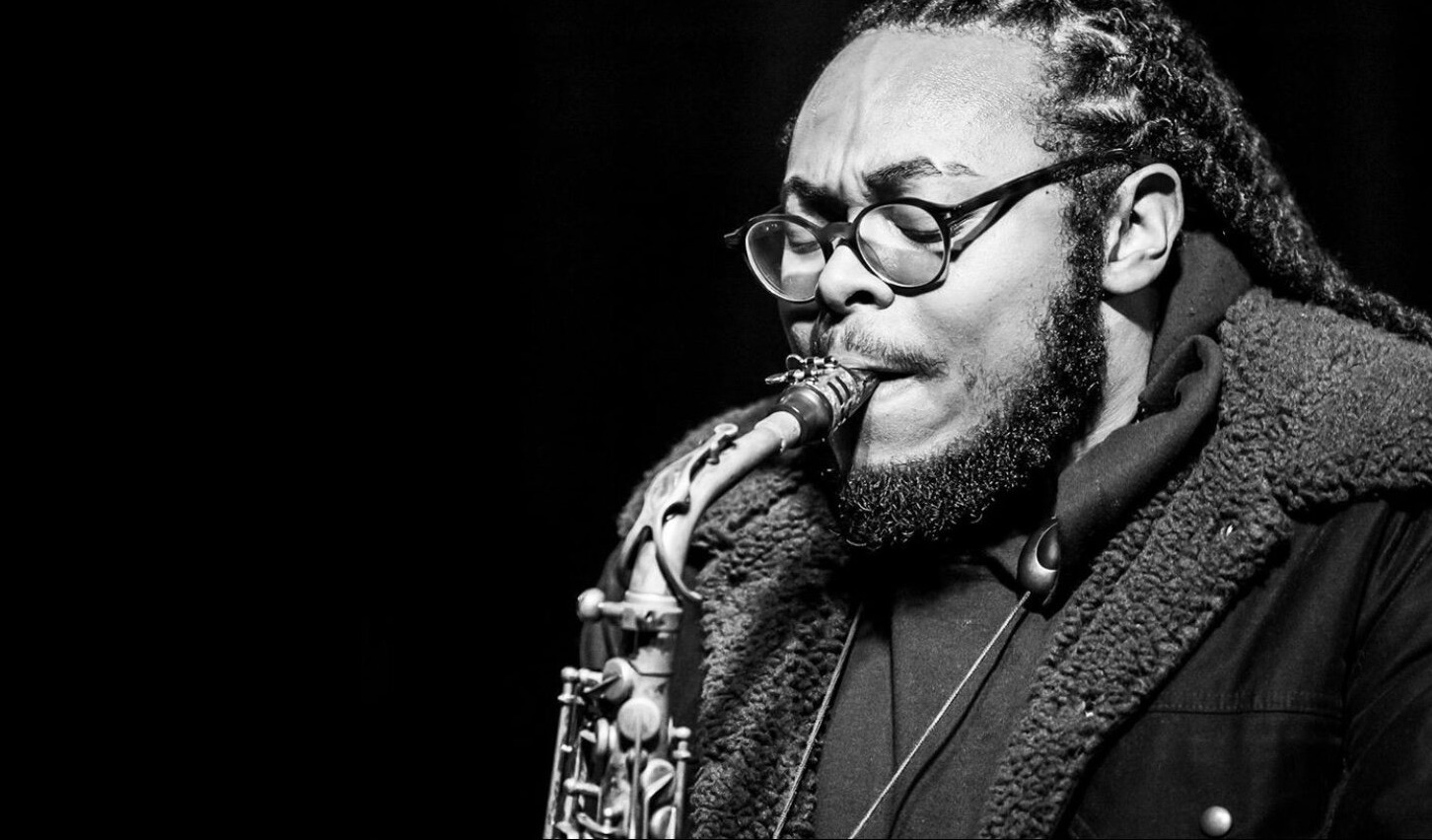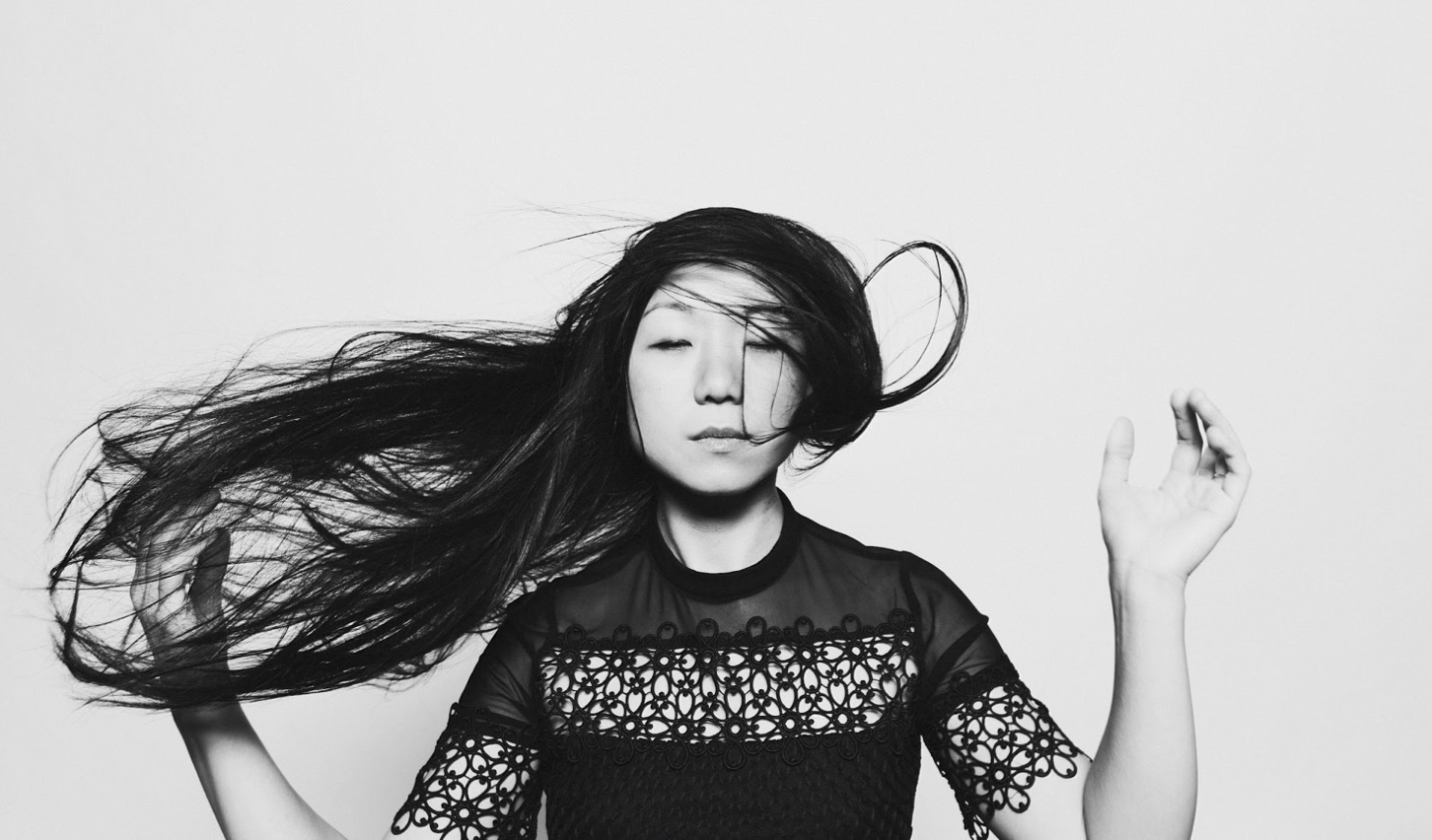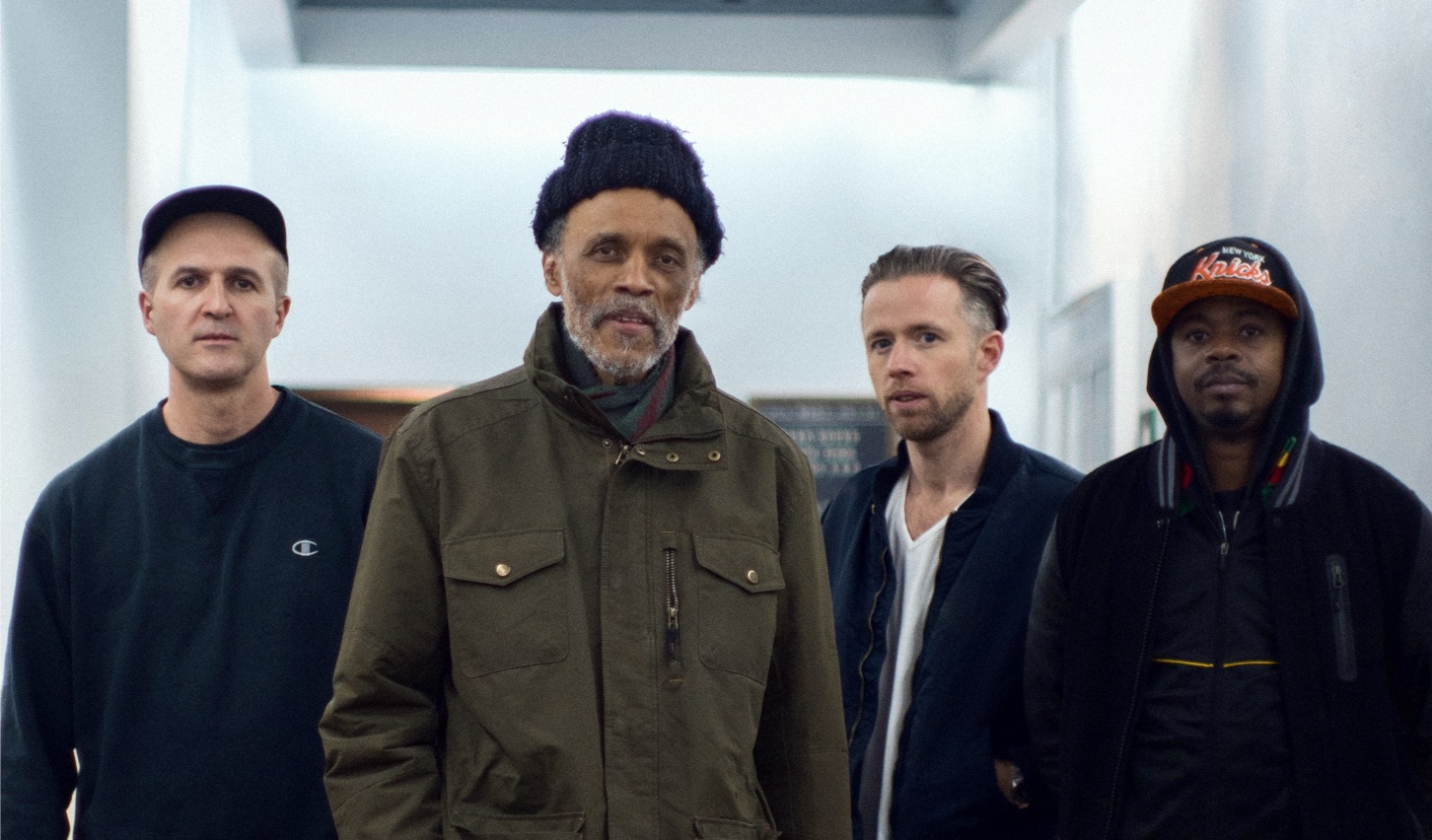

The music of saxophonist and composer Immanuel Wilkins is filled with empathy and conviction, bonding arcs of melody and lamentation to pluming gestures of space and breath. Listeners were introduced to this riveting sound with his acclaimed debut album Omega, which was named the #1 Jazz Album of 2020 by The New York Times. The album also introduced his remarkable quartet with Micah Thomas on piano, Daryl Johns on bass, and Kweku Sumbry on drums, a tight-knit unit that Wilkins features once again on his stunning sophomore album The 7th Hand.
The 7th Hand explores relationships between presence and nothingness across an hour-long suite comprised of seven movements. “I wanted to write a preparatory piece for my quartet to become vessels by the end of the piece, fully,” says the Brooklyn-based, Philadelphia-raised artist who Pitchfork said “composes ocean-deep jazz epics.”
Conceptually, the record evolves what Wilkins begins exploring on Omega, which included a four-part suite within the album. On The 7th Hand, all his compositions represent movements, played in succession. “They deal with cells and source material like a suite would,” says Wilkins, “but they function as songs, as well.”
While writing, Wilkins began viewing each movement as a gesture bringing his quartet closer to complete vesselhood, where the music would be entirely improvised, channeled collectively. “It’s the idea of being a conduit for the music as a higher power that actually influences what we’re playing,” he says. The 7th Hand derives its title from a question steeped in Biblical symbolism: If the number 6 represents the extent of human possibility, Wilkins wondered what it would mean — how it would sound — to invoke divine intervention and allow that seventh element to possess his quartet.
Wilkins often draws inspiration from critical thought. Even the striking album artwork challenges convention: “I wanted to remix the Southern Black baptism, and also provide critique on what is considered sanctified and who can be baptized.”
On “Emanation,” Wilkins’ hallmark conviction arrives in the first phrase. Imaginative and buoyant, he navigates layered interactivity before passing lead energy to a receptive Thomas. The movement finishes seemingly in the middle of a vamp — a reflection of Wilkins’ treatment of time. “In music, time is questionable,” he says. “It can challenge the notion of what time is and how you feel time.”
Wilkins sought to create an upside-down triangle of metric modulation through the recording. “Each piece is related to the next rhythmically by a triplet meter,” he says, “so it goes down by a triplet until the fourth movement, then it goes up by a triplet to the fifth movement, then to the sixth, and the seventh is free.” He crafted this concept in part for the feeling of seamless motion.
“Don’t Break” honors Wilkins’ friendship with Sumbry, and the influence they have on each other’s expressions. Featuring the Farafina Kan Percussion Ensemble, with which Sumbry regularly performs, the composition provides cyclical elasticity and an explicit representation of Wilkins’ concept. “When I think about vesselhood, I think of African practices of spirit possession,” he says. “You see that in most of the African Diasporic spiritual practices; Yoruba, it’s on the drums to call down a deity, and then the dancer gets possessed by that deity. But it’s kind of universal, across all African practices — including in the Black Church where you catch the Holy Spirit — and it’s directly linked with the spiritual power that the drum carries and how it’s able to channel that power.”
Wilkins composed “Fugitive Ritual, Selah” as a hymn to Black spaces. He drew inspiration from the energy of places where Black people gather in celebration, praise and refuge, away from a pervading culture of surveillance. “Selah means pause — one definition is to give space for the Holy Spirit,” he says. “I was fascinated with the idea that generally there are no white people in Black churches. If you go to a Black church, there’s no white people there [laughs]. It’s not like they’re not welcome. But somehow, the Black church has proven to be a space where magical things can transpire, within the space, on a quantum level.” Johns’ tender treatment of an introductory melody channels that feeling. “Daryl takes really beautiful solos,” says Wilkins. “I’m always pretty intentional about giving him space to do that and tailor-make a moment for him.”
The middle point of the seven movements, “Shadow” serves as the lowest-metered piece. Wilkins offered his bandmates Wayne Shorter’s composition “Fall” from the Miles Davis album Nefertiti as a musical reference, modeling “Shadow” after its essence. “I wanted them to be almost minimalist in their approach,” he says. “I wanted it to be pretty stripped down to basic swing, basic walking, to allow me and Micah to be a little creative but still have the melody going at the same time. It’s really about the melody, but it lends itself to creativity.”
The introduction of lyrical and textural dimension from flutist Elena Pinderhughes proves intentional, as well. Appearing on “Lighthouse” and “Witness,” whose melody features blossoming half-notes, Pinderhughes serves as an element of activation. Combined with Thomas’ mellotron, her flute acts as a vehicle to invoke divine intervention: “I thought of subtly introducing two new voices that emanate from the source of the band. There’s this Bible verse: “When two or three are gathered here in my name, there am I in the midst.”
Perhaps the most compelling movement develops over the course of 26 minutes. When they’d perform “Lift” live, the quartet never quite knew how the music would manifest. Sometimes the gesture would conclude after 10 minutes, sometimes 45. “We had no idea of how long it would be,” says Wilkins, “but in the studio we were like, ‘Let’s just go until it’s right to stop.’” The Pentecostal character of “Lift” tasks the listener with practicing radical empathy, according to Wilkins; the ritual of speaking in tongues emanates across arcs and cycles. “To an outsider, it’s gibberish or meaningless,” says Wilkins. “But those tongues send codes to the Creator. To the slave owner, Aunt Hester’s screams were just screams. But to the other slaves, those screams carried messages to flee, to sing, to run, to keep working — a host of things. So, I was fascinated with that, too — stream of consciousness or speaking in tongues carrying messages that listeners may not understand.”
Whether The 7th Hand reaches full vesselhood matters less than the attempt itself. Wilkins and his bandmates reveal their collective truth by peeling themselves back, layer by layer, movement by movement. “Each movement chips away at the band until the last movement — just one written note,” says Wilkins. “The goal of what we’re all trying to get to is nothingness, where the music can flow freely through us.”

Based in New York City, Linda May Han Oh is a bassist/composer who has performed and recorded with artists such as Pat Metheny, Kenny Barron, Joe Lovano, Dave Douglas, Terri Lyne Carrington, Steve Wilson, Geri Allen and Vijay Iyer.
Originally born in Malaysia and raised in Boorloo (Perth), Western Australia, she has received many awards such as a 2022 Deutscher Jazz Preis and the 2020 APRA award for Best New Jazz Work. She was voted the Bassist of the Year for 2018-2021 by the Jazz Journalist’s Association and in 2019 by Hothouse Magazine as well as 2022 Bassist of the Year by Jazztimes.
She has had five releases as a leader which have received critical acclaim. Her most recent release “Aventurine” is a double quartet album, featuring string quartet and vocal group Invenio.
Linda has written for large and small ensembles as well as for film, participating in the BMI Film Composers Workshop, Sundance Labs at Skywalker Ranch and composing for Sabrina McCormick’s short films, “A Good Egg” and “FracKtured.” Linda also composed and produced music for a collaborative film project with non-profit, “Hoperaisers” based in Korogocho, Kenya by film-maker Kizito Gamba and contributed music to his latest documentary “Calling the Shots” co-directed by Kore Abong about aspiring African women in the film-industry.
Linda is currently Associate Professor at the Berklee College of Music in the bass department and is also part of the Institute for Jazz and Gender Justice led by Terri Lyne Carrington.
She was recently featured in a quartet in the Pixar movie “Soul” playing bass under the musical direction of Jon Batiste (The Late Show with Stephen Colbert) alongside drummer Roy Haynes.
“her innovative range and stellar improvisations have made [her] one of the most dynamic rising stars in jazz today.” The Wall Street Journal
“A major bass voice arrives” – JazzTimes
• “On Walk Against Wind…[Oh] takes a long stride forward as a bandleader and composer. The writing is intricate but flowing, tailored to the articulate grace of her band.” – WBGO Take Five
• “Linda May Han Oh is a planetary force and these compositions, so brilliantly crafted, are her gravitational waves.” – Nextbop
• “One of the most fluid and instinctive bass players in New York City.” – SomethingElse Reviews

Legendary downtown music master Daniel Carter meets Tobias Wilner from world-renowned electronic band Blue Foundation. Featuring Wu-Tang Clan bass player Djibril Toure & drum wiz Federico Ughi. As a band, they have played a number of concerts in NYC, including the Forward Festival 2016 and 2018, and are currently promoting their debut album. This group is the ultimate mix between the classic New York sound of the avant-garde (i.e., John Coltrane & Albert Ayler) combined with electronic manipulation and production.
Although this is the first album they have released as a group, the four musicians have collaborated on different projects for years. The group was first formed when drummer Federico Ughi envisioned an ensemble comprised of some of his favorite super talented people. This includes Daniel Carter, who Federico first met in 2001. The two quickly developed a strong playing partnership, going on to create many albums and tours around the world and eventually founding 577 Records and the Forward Festival together. Federico plays drums in Tobias Wilner’s group Blue Foundation, renowned for its Hollywood movie soundtracks such as the vampire series Twilight in addition to Miami Vice and a busy world tour schedule. Federico also plays with Djibril Toure in the group Major Taylor, one of the best punk rock bands to come out of Bedstuy, Brooklyn in the last 10 years. Djibril plays regularly with GZA, a founding member of the Wu-Tang Clan and he’s the bass player featured on a selection of Wu-Tangs legendary albums.
To make this recording, New York United entered the studio without any preconceived plans or written music. They improvised brand new sounds on the spot that were later produced and molded by Tobias Wilner. The result is four strong and dreamy tracks that showcase the rich sound of the acoustic instruments alongside the power of the electronic beats. This project is being released as a limited edition 12’’ vinyl album plus one bonus track for the digital version.

Jest to ekspozycja największych gwiazd współczesnego jazzu, prezentacja najnowszych trendów i gatunków. Istotą festiwalu jest również kreowanie najwybitniejszych indywidualności. Artyści tacy jak John Zorn czy Steve Coleman, dzięki licznym występom na festiwalu i konsekwentnemu budowaniu ich wizerunku, stali się obecnie ważnymi artystami światowymi.
Głównym elementem festiwalu są koncerty gwiazd światowego jazzu, które są specjalnie dobierane w zależności od pozycji artystycznej oraz możliwości dostępu artystów w danym terminie. Dotychczas wystąpili najwięksi artyści muzyki improwizowanej, w tym: John Zorn, Ornette Coleman, Joe Zawinul, Marcus Miller, Pharoah Sanders, Al Jarreau, Herbie Hancock, Pat Metheny, Bobby McFerrin, Branford Marsalis, Chick Corea, aby wymienić tylko tych przykładowo. Podczas dotychczasowych edycji, zrealizowano łączenie ponad 300 koncertów.
Integralną i stałą częścią festiwalu są występy polskich muzyków jazzowych, zarówno tych znanych jak i młodych, będących na początku kariery.
Festiwal rozpoczyna dwudniowa gala polskich zespołów, których liderzy i ich muzycy stali się bohaterami jazzowych mediów. Docenieni nie tylko przez rodzime redakcje, ale i przez największe tuzy jazzowych krytyków zaprezentują się publiczności festiwalowej. Ich projekty muzyczne staną się niebawem, bądź są już pożądanymi dla wielu organizatorów koncertów czy festiwali jazzowych. Warsaw Summer Jazz Days będzie promotorem tych wykonawców.
Gwiazdą drugiego dnia będzie jeden z najlepszych gitarzystów wszechczasów – Al Di Meola ze swoim Trio. Był wielokrotnie na festiwalu, a najbardziej w pamięci pozostają koncerty tria: John McLaughlin/Al Di Meola/Paco de Lucia (organizowane przez naszą agencję koncertową ).
Zgodnie z trendem ostatnich lat trzeci dzień to erupcja angielskiego jazzu, współczesnej mieszanki muzyki klubowej, elektroniki i kolorytu dzisiejszego świata. Wszystkie trzy zespoły są oczekiwanymi przez naszą jazzową publiczność. Skorelowanie ich występu jednego dnia było nie lada wyzwaniem. Występ Chelsea Carmichael i jej kwartetu będzie niewątpliwie wydarzeniem festiwalu. Świadomie promowana u boku największych gwiazd współczesnego show-biznesu stała się już oczekiwaną osobą.
Czwarty dzień festiwalu to uczta dla fanów współczesnego jazzu. Trzy projekty odzwierciedlają różne gatunki współczesnej muzyki improwizowanej. Immanuel Wilkins i jego kwartet, to emanacja dzisiejszego jazzu pełnego energii i intelektualnych zagadek. New York United zaś będzie czarnym koniem festiwalu. Młodzi i znani europejscy muzycy towarzyszący guru światowego jazzu- Danielowi Carterowi jak i On sam staną się przyczynkiem owacji na stojąco. Finał tego dnia to występ kwintetu wspaniałej basistki Lindy Oh z jej najnowszym kwartetem. Dla niewtajemniczonych warto nadmienić, iż grała m.in. z Waynem Shorterem czy Vijay Iyerem. Ten koncert to gratka dla prawdziwych fanów współczesnego jazzu.
Ostatni wieczór festiwalu rozpocznie „najlepszy” towar eksportowy z Polski, czyli Maciej Obara Quartet. Ten polsko-norweski zespół wydający również dla wytwórni ECM koncertuje na całym świecie z dużym powodzeniem, więc warszawski występ będzie na pewno oczekiwany. Kolejnym faworytem festiwalu, szczególnie dla mnie będzie Oktet wybitnego wibrafonisty Joela Ross’a z projektem „Parables”. To formacja wielu wybitnych instrumentalistów, którzy prezentują znakomite kompozycje lidera z jego fantastycznymi aranżacjami. Finał trzydziestej drugiej edycji festiwalu to występ Dave Holandia Quartet. Gościł na festiwalu już kilkukrotnie z różnymi tuzami światowego jazzu, a teraz pojawi się ze swoimi sprawdzonymi przyjaciółmi.
Bilety są dostępne w kasie Klubu Stodoła oraz w sprzedaży internetowej: www.stodola.pl, www.ticketclub.pl
Klub Politechniki Warszawskiej „STODOŁA”
ul. Batorego 10, 02-591 Warszawa
telefon: +48 22 825 60 31, +48 691 800 388